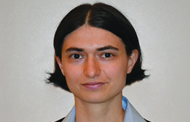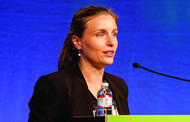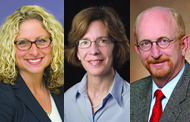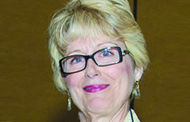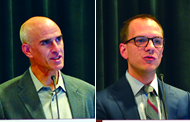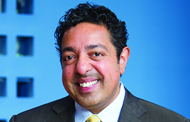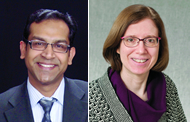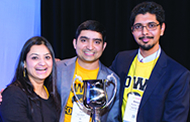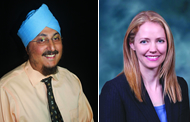
2015
-
Great Debate participants consider early use of low-dose corticosteroids for RA
In a lively debate Sunday about the use of low-dose corticosteroids in the initial six months of therapy for rheumatoid arthritis and in the first one-to-three years of therapy, Maarten Boers, MD, PhD, MSc, and Eric M. Ruderman, MD, presented research and arguments supporting both…
-
Knowledge of inflammatory dendritic cells expands
New basic research on inflammatory dendritic cells offers greater understanding of how these cells function that could lead to new immunotherapies for inflammatory diseases such as RA and psoriasis, according Elodie Segura, PhD, Research Associate at the Institut Curie in Paris.
-
Parasitic myositis case voted tops at Thieves’ Market
A mysterious case of parasitic myositis from Australia presented by Emma Mitchell, MBBS, was the clear audience favorite during Sunday afternoon’s Thieves’ Market clinical symposium, a special session featuring several short presentations on clinical cases relevant to rheumatology.
-
Special anniversary session highlights Foundation-funded research insights
The Foundations celebrates its 30th anniversary this year, and on Tuesday afternoon will play host to a special session commemorating the anniversary and featuring presentations covering some of the cutting-edge research financed by the Foundation, including the work of Mara L. Becker, MD, MSCE.
-
ARHP distinguished lecturer hails 50 years of advances
If there is one consistent theme running through the 50-year history of the AHRP, it’s that these practitioners have pushed the envelope until their new ideas became routine. So said Teresa J. Brady, PhD, Senior Behavioral Scientist in the Arthritis Program at the Centers for…
-
Clinicopathologic Conference shows route to GPA diagnosis
This year’s Clinicopathologic Conference, which takes the audience through the step-by-step process of a differential diagnosis and the twists and turns of the patient’s course to arrive at a final diagnosis spotlighted the case of a 50-year-old French-born Caucasian male with no past medical history…
-
Harnessing of Big Data to transform treatment
A special symposium on Tuesday afternoon, Utilizing Big Data to Advance Rheumatology, part of the Annual Meeting’s new TechMed sub-track, will feature one of the nation’s leading bioinformatics and medical technology experts, Atul Butte, MD, PhD, Director of the Institute for Computational Health Sciences at…
-
Experts to explain how to apply new myositis response criteria
In the Wednesday morning symposium New Adult and Juvenile Myositis Response Criteria, two members of the steering committee and consensus leaders from that landmark gathering in Paris will provide an overview of the new myositis response criteria, specifically describing how the criteria can be applied…
-
The Hawkeyes repeat as Knowledge Bowl champions
The Hawkeyes — Vijay Aluri, MD, Bharat Kumar, MD, and Namrata Singh, MBBS — returned to this year’s Annual Meeting and defended their Knowledge Bowl title from 2014.
-
Use of ultrasound gains ground in more practices
“The current tools we have to evaluate patients, however, are not entirely perfect. They allow us to do our jobs, both clinically and in trials, but there is room for improvement,” said Gurjit Kaeley, MD.

